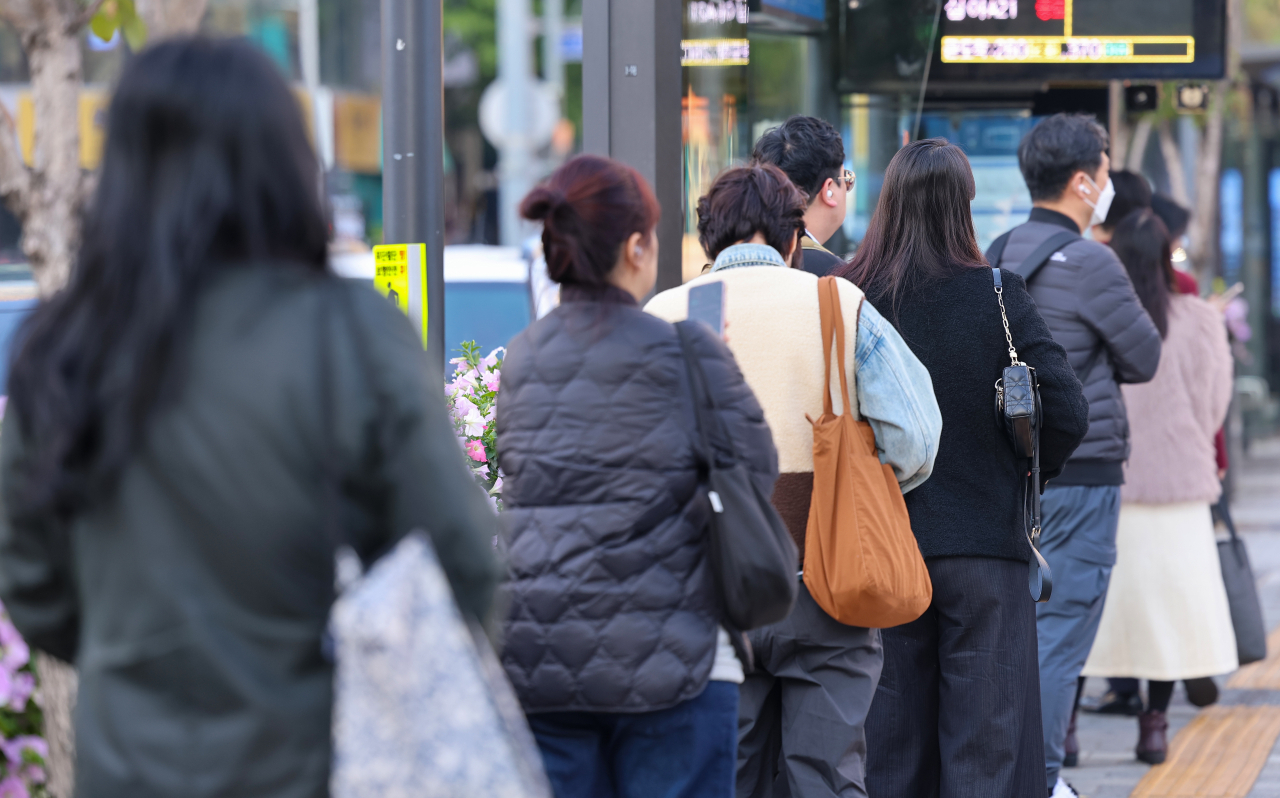
 |
| Commuters wait for the bus in thick autumn clothing near Gwanghwamun in Jongno-gu, central Seoul. (Yonhap) |
Following heavy rainfall focused on the southern region of South Korea, average nationwide temperatures will begin to significantly drop Monday, according to the Korea Meteorological Administration on Thursday.
During Thursday’s press briefing, the KMA explained it anticipates temperatures to significantly drop from Monday as the continental anticyclone from the north expands above the Korean Peninsula, bringing in cold, northwesterly winds into the country.
On Monday, average morning low temperatures are expected to fall to as low as 9 degrees Celsius, while daytime temperatures are expected to reach 12 C. According to the KMA’s short-range weather forecast, the average temperatures will drop even further on Tuesday and Wednesday, as nationwide morning lows will only reach as high as 3 C.
As the continental anticyclone completely covers and passes through Korea from Tuesday, the KMA explained that strong winds coming in from the north will somewhat diminish, but that cold temperatures will persist due to radiational cooling.
From Nov. 7, the KMA anticipates average nationwide temperatures to become similar to previous years, as the continental anticyclone changes form into a migratory anticyclone and moves out eastward from the Korean Peninsula, welcoming warm southerly winds. On the that day, daytime temperatures are expected to rebound to as high as 15 C.
Meanwhile, the KMA added that heavy rainfall is expected to fall in southern parts of Korea over the weekend. Moist air from the south is being dragged upward into Korea, due to the influence of Typhoon Kong-rey near the southern coast of Taiwan and the North Pacific High in the east. The moist air is expected to collide with cool air blowing into Korea, forming rain clouds over southern areas, including Jeju Island.
Rain will begin to fall over Jeju Island, South Jeolla Province, southern parts of North Jeolla Province and South Gyeongsang Province from early Friday morning, before eventually spreading to the entire region before noon. Jeju Island can expect to see collective rainfall of up to 150 millimeters over the weekend, while heavily hit regions may see more than 250 mm. Other parts of the southern region, including Busan, Ulsan, South Gyeongsang Province and southern parts of South Jeolla Province may see rainfall ranging between 20 to 60 mm.
The KMA added that the southern region may also see heavy rain of up to 30 mm per hour, accompanied by thunder and lightning.
Meanwhile, other parts of Korea, including Greater Seoul, will see warm weather over the weekend due to warm easterly winds. However, as the high pressure system passes through northern parts of Korea, some regions in the north may see small amounts of rain from Sunday night going into Monday.









